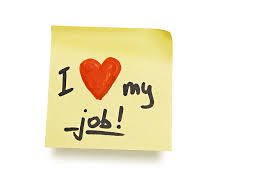
We all need help from time to time. Here are four tips for getting the support you need and finding the necessary resources to assist you:
Prioritize your needs and act early.
When it is avoidable, don’t wait until you are in crisis. Write down your needs and decide what action you will take today to find support with your top need.
Be very specific in your ask and be willing to share requested information.
When you are vague or reluctant to provide requested details you may be misdirected. You may also miss out on support or information. People are smart and, given specific information, it is easier for them to ask different questions to help you.
Understand your emotions and deal with them first, when possible.
You own your emotions. Others don’t have the power to control or create your emotions — unless you give them permission to do so. Remember your emotions may trigger emotions for others. You can’t control their choice or reaction, however you can choose yours.
Receive what is offered, be grateful and willing to ask, “Do you know someone else who might be able to help?”
Be open to receiving what is offered. Be grateful in the moment. Say “thank you” aloud — even when the support is not what you hoped for or wanted. Follow up and ask who else might be able to help.
Allow the conversation to flow. We all need help and support from time to time. Connection, community and caring are often easier to find than you think.
Specific communication and action are key elements to getting support and finding resources. When you need support to overcome obstacles and solve problems that may be blocking or slowing your flow to success, pause, prioritize and pose the specific request. Then identify the role your emotions play and receive with gratitude what others can and will share with you.
Here’s to your accelerated success. Have an amazing day!

 Tomorrow is April 1st – April Fool’s day! And, at least in the Western world, a day of light-hearted fun and for me a sure sign Spring is near. The days are growing longer and that means more time to be outside.
Tomorrow is April 1st – April Fool’s day! And, at least in the Western world, a day of light-hearted fun and for me a sure sign Spring is near. The days are growing longer and that means more time to be outside. A few weeks ago,
A few weeks ago,  It’s time to drop the “stuff.” It’s time to get real, get personal and talk to people.
It’s time to drop the “stuff.” It’s time to get real, get personal and talk to people.
 The Black Hole . . . is it real?
The Black Hole . . . is it real? During a recent workshop an attendee stood up and stated that if employers want a specific and up-to-date resume they should, “just get over it.” Why? She argued no one has time to be specific or keep things current these days.
During a recent workshop an attendee stood up and stated that if employers want a specific and up-to-date resume they should, “just get over it.” Why? She argued no one has time to be specific or keep things current these days.




